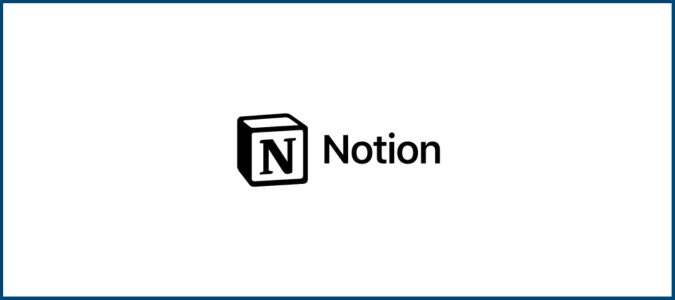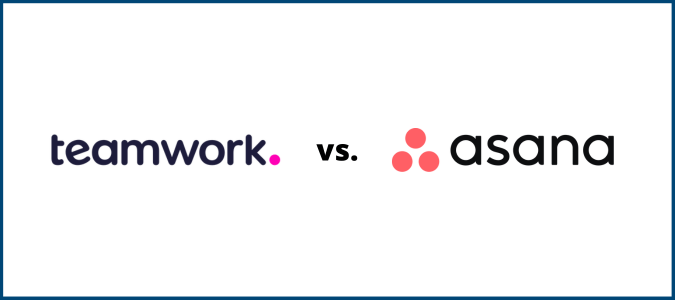Both Notion and Jira Software are functional project management tools, but they each originally started for different purposes. Notion began as a note-taking app that grew into an all-in-one workspace with an impressive range of project management features. Jira Software, on the other hand, was specifically designed for software development and bug tracking. Both have evolved into solutions that can also handle general project management, though they still excel at their original purposes.
Notion is a productivity tool and project management app that helps teams bring content, projects, data, and client work into a centralized place. With an impressive level of flexibility and a simple, clean interface, Notion is valuable for both small teams managing client projects and bigger teams needing somewhere to share and edit company content, like onboarding documents or internal wikis. You can get started with Notion today for free.
Jira Software was specifically made for PM in relation to software development and issue management, and you’ll quickly be able to see that it was created to handle complex projects with big task breakdowns. Jira Software is adept at managing multiple projects and generating reports, plus its free plan offers great value. You can get started with Jira Software for free.

Notion and Jira Software Compared to the Best Best Project Management Software
Below you’ll find our Golden Eggs, which are our favorite project management tools based on our own research and testing. These three options are more generalized PM platforms than Notion or Jira Software and serve as quality alternatives for a wide array of users.
Monday.com delivers essential PM features in an easy-to-use interface, which makes it our favorite choice for new users or teams who want to jump into project management quickly. You can get started on any Monday.com plan for free.
ClickUp is an impressive option for managing project work with remote workers, featuring a great range of collaboration features at an affordable rate. Try ClickUp today by signing up for its free-forever plan.
Smartsheet is the best project management tool for people who are accustomed to managing data in spreadsheets and need something similar to Excel with much more flexibility. Try out any Smartsheet plan for free.
Notion Compared to Jira Software
While coming from divergent origins, Notion and Jira Software have a lot of shared features and similarities to compare them on. Let’s go through a quick overview of what each one offers and what project management needs each satisfies.
Notion Highlights
Notion only has one main product, which is the Notion platform itself. However, that product covers a lot of ground, offering note-taking capabilities, internal wikis, task management, and document creation and organization. Included in this is a huge range of supportive features, from project dashboards and multiple project views to file sharing, collaboration, and budgeting, to name a few.
Notion’s documentation features are well-designed for individuals or small-to-medium teams, who will enjoy the blend of individual note-taking capability with larger document creation and storage.The wiki feature, for example, was created for the purpose of helping entire organizations gain a centralized place to serve as repository for internal documents (like SOPs and handbooks) and company information.
Notion is flexible enough to solve a lot of different problems within a project, from setting accurate budgets and managing project timelines to breaking up projects into individual tasks and assigning them to team members. Although it became popular for its list view of project work, it also offers users grid and calendar views, plus Kanban boards, all of which are highly customizable.
Jira Software Highlights
Jira Software is a part of Atlassian, the company behind a wide array of popular project-oriented software like Trello and Confluence. Jira Software comes in two forms: Jira Software, which is what we’ll primarily cover in this post, and Jira Service Management, which is a more specialized IT service management solution.
Jira Software solves for two distinct but related use cases: software development and project management. When users sign up, they are asked which of the two situations matches how they are planning to use the software. Users can also change their settings while in the software to tailor the experience to one use case or the other.
No matter the use case, Jira Software goes deep on features for project management. You’ll find the essentials you’d expect, like Scrum boards, roadmaps, and other Agile-minded features, plus advanced functionality like code repositories, custom workflows, and a staggering 3,000 possible integrations with other tools and software.
Notion vs. Jira Software: Pros and Cons
Now, let’s stack these two project management solutions up against one another. We’ll break down what each one does best and what it’s missing below, so you can assess which tool would be better for you and your team’s specific needs.
Where Notion Shines
Customization: Without question, the main strength of Notion is its flexibility. Notion’s building blocks allow users to create any kind of content, from galleries, lists, and graphs to images, whiteboards, and videos. This is an asset for both internal work and client work because users can share things with other users and guests. Plus, project work areas can be tailored to your needs by adding lists and boards directly within other tasks or projects.
Collaboration: Notion has a lot of great collaboration features, specifically for editing content and sending updates. Users can add comments anywhere within a project or database, and get notified when they are mentioned in a comment. That helps a lot with project workflow and also with proofing external-use materials like marketing collateral. File sharing is easy in the software, allowing you to attach documents, images, graphs, reports, and videos to tasks and boards.
Versatile views: Notion may have started as a note-taking app, but it’s just as sophisticated as other project management tools when it comes to its dashboards. Individual users can create ones that show them only the work relevant to them at a glance, while department heads can gather information from disparate projects into one place. Users also can view project workflows in timelines, calendars, galleries, lists, or Kanban boards. Not only are these views great for teams working on different types of projects, but they are just as customizable as Notion’s other content blocks, which isn’t something you see with every other PM platform out there.

Internal wikis: One of Notion’s other standout features is the ability to create detailed internal wikis. Store everything related to your organization, from commonly-used documents, onboarding materials, and standard operating procedures to employee directories, OKRs, and branding requirements. Because Notion has such a high level of flexibility and customization, these can get as detailed as users need, while still being easy to read and navigate.

Where Notion Needs Improvement
Streamlining information: Although the flexibility and customization you get with Notion is a good thing, it can also be a problem when introducing new users to a dense or complicated project setup. Users end up responsible for keeping Notion’s interface clean and making it usable, so if teams are not great at staying on top of item resolution or navigating information-heavy interfaces, Notion has the potential to become messy or confusing fast.
Goal tracking: Notion doesn’t have as many goal tracking features as Jira Software does, so users are kind of left having to set these up themselves and hold themselves personally accountable. For teams that aren’t used to setting these kinds of workflows up from scratch, they may find it difficult to get Notion to handle this in the way they want it handled.
Where Jira Software Shines
Agile project management: Jira Software’s features for Agile teams are a key strength. Set up scrums with boards that break down complex projects into smaller, manageable tasks and provide an easier workflow for planning projects and streamlining operations. Roadmaps come standard on every Jira Software plan (even the free-forever one), which is something few other PM tools can claim. Set up epics and sprints with ease, broken down by week, month, or quarter.

Integrations: Jira Software boasts one of the largest libraries of integrations out there. You can connect the software to over 3,000 other platforms, covering everything from cloud storage and collaboration to time tracking, code review, build management, and more. Jira Software even offers to help you connect the tools your team is using during the Jira Software setup process.
Detailed reporting: The reporting capability of Jira Software is especially useful for complex projects with tons of touchpoints and associated data. Tap into Jira Software’s library of prebuilt reports—such as those for sprints, velocity, or burndown charts—or select the data you need piecemeal. Generated reports can be shared with clients and stakeholders or displayed for all relevant internal workers via Jira Software’s dashboards.

Flexible project views: Jira Software comes with a great range of templates, prebuilt workflows, and access to multiple views, even on the free plan. But, Jira Software has one of the easiest ways to switch project visualization we’ve seen, letting you toggle seamlessly from list to grid to calendar to timeline.
Bug tracking: One of the original uses for Jira Software was bug tracking, so it’s no surprise that these features in the software are so much more sophisticated than most other project management platforms. Jira Software has both a complex issue-tracking navigator for experienced users and the ability to manage issue lifecycles and insights through Kanban boards.
Where Jira Software Needs Improvement
Ease of use: Because Jira Software was originally designed to track software development projects, it’s a little more complicated and tailored towards devs than other project management software. This is true to the extent that even signing up can feel a bit confusing. A lot of the terminology in the software is also specifically designed for software development projects or Agile teams. That means if your team isn’t familiar with either, it could take some finagling of settings and filters to avoid delays with user onboarding.
External collaboration: Although Jira Software is really great when it comes to internal collaboration features, it’s not the easiest tool to use with outsiders, like clients or freelancers. Not only is it limited in terms of who can be added and how they can collaborate, but the actual process of setting this up and changing security settings is pretty complicated and lengthy compared to other project management software. It’s just not as intuitive to create guest access accounts with limited permissions in Jira Software.
The Last Word on Notion Compared to Jira Software
Both Jira Software and Notion are great options for some forms of project management. Jira Software is the obvious choice for those who lean on the Agile methodology or have software development as a major part of their routine project management. Notion, on the other hand, is a leading choice when you want a flexible but not over-featured platform for managing tasks and documents. For less experienced users or smaller teams, Notion is going to be the better choice of the two.
That being said, these two software options are more specialized than some of the other, leading PM platforms available. If your project management needs are more complex than Notion is built for, but not focused enough on Agile PM or software development to make Jira Software a good fit, consider some of the leading alternatives. We’ve written a full post breaking down the best project management software, with several options there you can choose from which may be a better solution for you.















